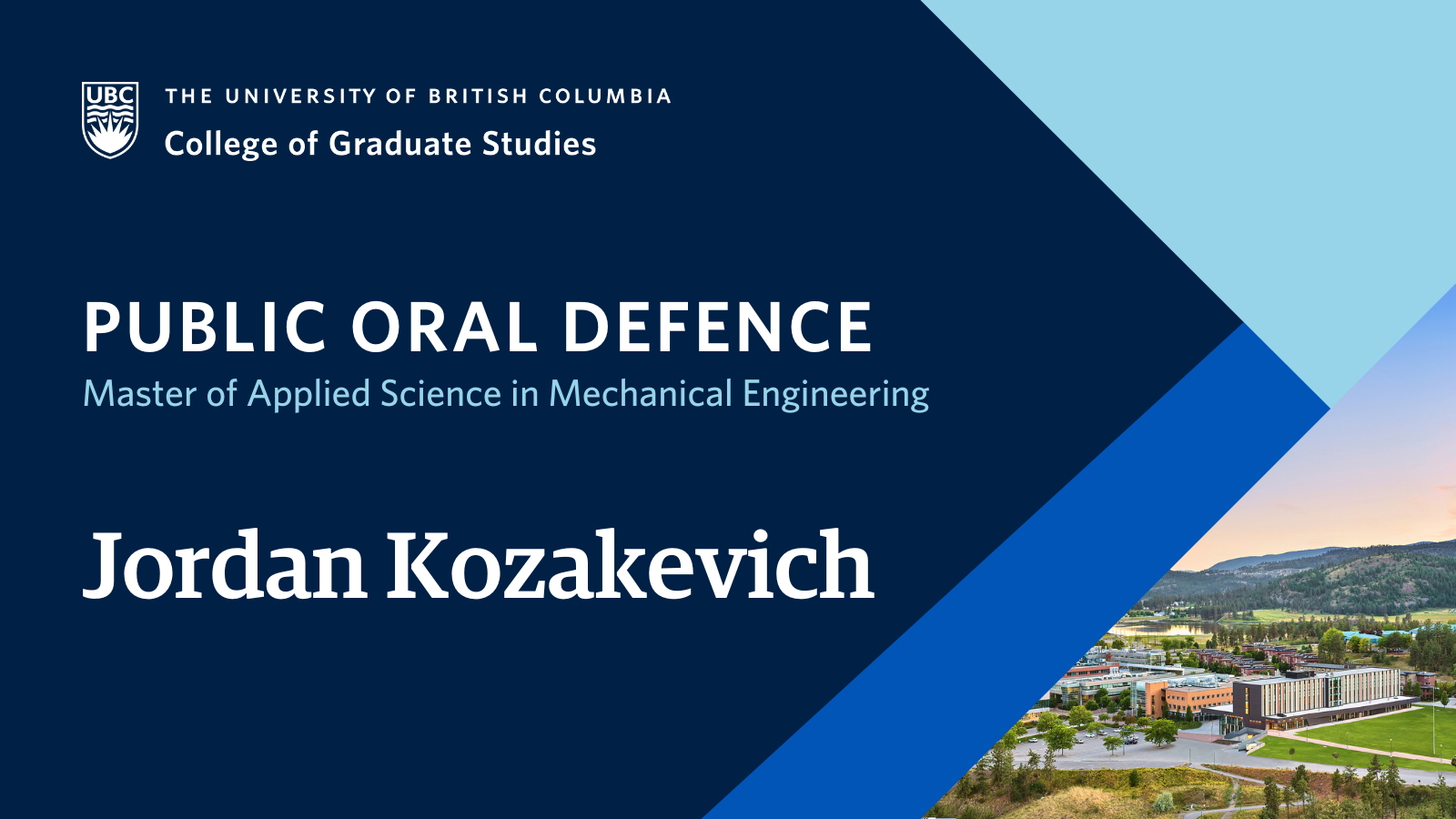
- This event has passed.
Thesis Defence: Development and Characterization of a Novel Near-Eutectic Al-Ce Alloy with Additions of Ni and Mn for Elevated Temperature Applications in the Automotive Industry
November 22, 2022 at 9:30 am - 12:30 pm

Jordan Kozakevich, supervised by Dr. Dimitry Sediako, will defend their thesis titled “Development and Characterization of a Novel Near-Eutectic Al-Ce Alloy with Additions of Ni and Mn for Elevated Temperature Applications in the Automotive Industry” in partial fulfillment of the requirements for the degree of Master of Applied Science in Mechanical Engineering.
An abstract for Jordan’s thesis is included below.
Defences are open to all members of the campus community as well as the general public. Registration is not required for in-person defences.
ABSTRACT
Aluminum-cerium alloys have gained significant attention in the automotive industry due to their unique fine lath-eutectic structure, high thermal stability, excellent castability, and high wear resistance. The combinations of these attributes are what the automotive industry is currently in demand for as they continue to develop highly efficient internal combustion engines. The major drawback of the aluminum-cerium system that prevents it from mass production in applications such as engine blocks or turbochargers is its lack of strength. Therefore, the scope of this study is to characterize a novel aluminum-cerium-nickel-manganese alloy by its microstructure and tensile properties. Additionally, because the combination of these elements is not heat treatable, they rely on a cooling rate to refine the microstructure and tailor mechanical properties. Characterization of this novel alloy concerning cooling rate, microstructure and tensile strength was the grand scope of this study.
In this thesis, a wedge mold casting of the Al-11.3Ce-3.2Ni-1.2Mn (wt.%) was used to simulation cooling rates in the range of 0.1-10 °C/s. SEM and EDS techniques were used to characterize the microstructure which consisted of five main phases: α-Al, Al23Ce4Ni6, Al11Ce3, Al20CeMn2, and Al10CeMn2. Additionally, DSC results confirm minor compositional changes throughout different areas of the wedge mold.